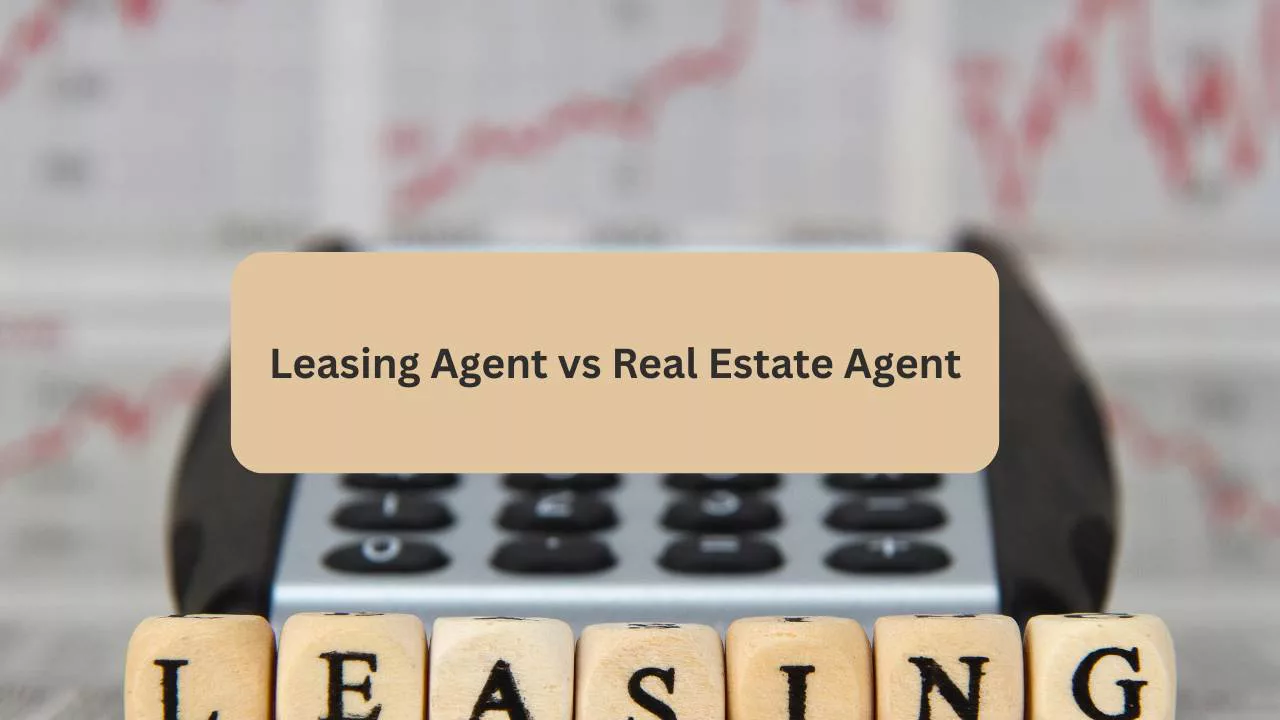Know the Difference for Real Estate Pros
The real estate industry is full of titles that sound similar but make a world of difference in daily operations and bottom-line impact. I often hear newer agents and even some veteran property management companies ask, “What’s the real difference between a leasing agent and a real estate agent?” Let’s clear that up, especially for folks building teams, managing rental properties, or scaling real estate firms in high-demand markets.
Leasing Agent vs Real Estate Agent, A Side-by-Side Comparison
| Leasing Agent | Real Estate Agent | |
|---|---|---|
| Focus | Rental properties, lease agreements, tenants | Home sales, purchases, listings, buyers, sellers |
| Clients | Prospective renters, property owners, management companies | Buyers, sellers, homeowners, investors |
| Compensation | Flat fee or % of total lease value, regular payouts | Commission on sales, sometimes leasing |
| Paperwork | Rental applications, background/credit checks, leases, renewals, rental property inspection checklist | Purchase contracts, listing agreements, disclosures |
| Licensing | High school diploma, sometimes real estate license/broker’s license (varies by state) | Real estate license required, broker for advancement |
| Schedule | Flexible/own schedule, many showings, new leases on a regular basis | Client meetings, showings, paperwork, marketing |
From my experience, residential leasing agents work especially closely with property management teams to keep occupancy high and maintain strong client relationships. Real estate agents, on the other hand, might specialize in the sale of houses or apartments but can also cross over into rentals in some firms.
What Does a Leasing Agent Do?
In my opinion, leasing agents are the unsung heroes of the rental market. Their primary focus is on helping prospective renters find available units in residential properties, think apartments, condos, and even single-family homes owned by investors or homeowners. Leasing agents work closely with property management companies to show properties, handle rental applications, conduct background checks and credit checks, and make sure lease agreements are signed correctly.
One thing I’ve learned is that leasing agents are all about speed and service. They juggle property showings, follow up with potential tenants, collect security deposits, and oversee lease renewals. It’s a fast-paced role, perfect for those who love a varied schedule and thrive on building rapport with prospective tenants and current residents alike.
The leasing agent profession usually requires a high school diploma and, in some states, a real estate license or broker’s license. Some leasing agents are paid a flat fee per lease, while others earn a percentage of the total lease value so income difference can vary, but the regular basis of commission payouts keeps things motivating.
What Does a Real Estate Agent Do?
Now, real estate agents are the Swiss Army knives of the industry. I like how their responsibilities go beyond rentals, they help buyers and sellers with real estate transactions, manage paperwork, market properties, and negotiate deals from listing to closing.
Where leasing agents focus on renters and lease agreements, real estate agents deal with homeowners, buyers, and sellers of residential and commercial properties. They assist clients in making the right decision about houses or investments, conduct market trend analysis, and manage everything from property marketing to open houses. The average salary for real estate agents depends on the number of properties they sell or lease, but the potential for higher commissions is there, especially in hot real estate markets.
When Do You Need Each?
Here’s the thing: if you’re running a property management company, residential leasing agents are your go-to for filling available units and managing the day-to-day of the rental market. They excel at handling high demand, showing properties, processing rental applications, and managing lease renewals or new leases. This frees up brokers and real estate agents to focus on more complex deals and growing the brokerage.
On the flip side, real estate agents shine when you need someone to market and sell properties, represent buyers, or guide homeowners through the often emotional process of a sale. They’re also a must-have when you want someone experienced in analyzing market trends and negotiating for top dollar.
I’ve seen teams work best when leasing agents and real estate agents collaborate. For example, leasing agents might refer prospective renters who are ready to buy to the sales team, and vice versa, building long-term client relationships that benefit everyone.
Hiring & Integrating into Your Team
Recruiting leasing agents or real estate agents depends on your business goals. In my opinion, the best property management companies and real estate firms invest in onboarding, training, and CRM systems that let agents and leasing agents work seamlessly together. Build rapport within your team and with clients, this always leads to more signed leases and closed sales.
And don’t forget: the real estate market rewards agents who know how to market properties, nurture potential tenants, and stay on top of paperwork. Whether you pay a flat fee, commission, or a blend, compensation should reward performance and client service.
FAQs
What’s the average salary for leasing agents?
It varies, many earn a base plus bonuses per lease signed or a flat fee, depending on the property management company or brokerage.
Can a real estate agent do leasing?
Yes, many real estate agents handle both sales and leasing, especially in firms where rental properties are a big part of the business.
Are leasing agents involved in property management?
Often, yes. They handle lease agreements, move-ins, rent collection, and regular communication with current residents and prospective tenants.
Building Your Real Estate Team
Believe me when I say choosing the right roles for your real estate firm or property management company can make all the difference. Think about what your properties and clients need most. Are you focused on maximizing occupancy in rental properties? Or is your brokerage aiming to dominate sales in your local real estate market?
From my experience, pairing strong leasing agents with savvy real estate agents leads to fewer vacant units, more signed leases, and a happier client base. And don’t underestimate the value of ongoing training market trends, new marketing techniques, and changes in state licensing can all impact your bottom line.
Decision Checklist
- Need help filling available units in residential properties? Hire a leasing agent.
- Looking to boost sales, help buyers, and close deals? Bring on a real estate agent.
- Want to do both? Build a blended team and cross-train!
If you’re thinking about scaling your team or just want to see what the right mix could look like for your business, I’d love to chat. Book a free workflow consultation or reach out for a demo, let’s make your real estate operation thrive in any market.
About the Author

Joseph E. Stephenson, REALTOR®
License #00054082 | Kansas & Missouri
Affiliated with Welch & Company (License #CO00000477)
Joseph E. Stephenson is a licensed real estate professional in Kansas and Missouri with a career built on dedication to integrity and client-focused service. To learn more about how Joseph can assist you in your real estate endeavors, visit his REALTOR® profile at realtor.com.
Verify Joe’s Real Estate License Credentials
Real Estate Agent License VerificationVerify Joe’s Business Credentials
Joseph E. Stephenson also operates a business named Stephenson Residential, LLC. You can verify the business at the Kansas Secretary of State’s website.
Verify Business Credentials




